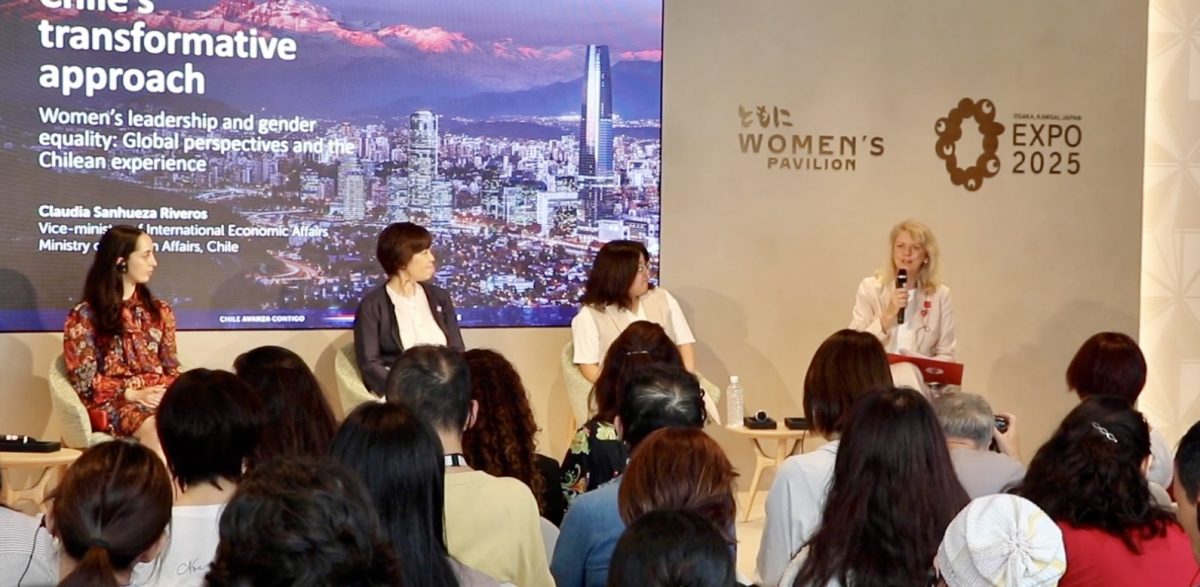By Alyssa Johnston
Expo Reporter
OSAKA, Japan — The head of Canada’s team at Expo 2025 joined a panel on women’s empowerment called “Breaking down barriers, building futures,” held at the Expo 2025 Women’s Pavilion on Sept. 4. The event was led by members from Chile who presented on the frameworks they have built for women in their country.
Four panelists – including Laurie Peters, the Commissioner General of Canada’s Expo pavilion – added their insights.
“Too much legislation and too much policy has been made without thinking about underrepresented groups such as women,’’ Peters said during the panel. “It’s surprising the number of examples where it’s clear women were not at the decision-making table.”
The discussion highlighted the challenges many women face in their professional and personal lives, from breaking into politics and advancing their careers to higher positions, to balancing careers with family responsibilities, such as taking care of children and parents who require nursing care. The panellists, including female CEOs, members of women’s executive networks, and pavilion commissioners, offered personal stories and perspectives on navigating these common challenges.
The panellists were:
- Elisa Torres Durney, Co-founder and CEO of Girls in Quantum
- Hiroko Kojima, President and CEO of JAL Mileage Bank Co. and a member of the Japan Women’s Innovative Network (J-Win)
- Kyoko Okutani, Well-being Leader at Deloitte Tohmatsu LLC and a member of J-Win
- Laurie Peters, Canada’s Commissioner General at Expo 2025 Osaka
Kojima and Okutani are members of J-Win, which is an organization that supports the promotion and establishment of diversity management in companies. Japan ranks low in the World Economic Forum’s Global Gender Gap Index, but there are organizations like J-Win that provide advice and consulting on women’s empowerment and conduct seminars and lectures to support the promotion of diversity management in companies.
Peters explained that Canada has frameworks and policies that support women’s empowerment, and that half of Canada’s ambassadors in the foreign service are women. These frameworks support women’s advancement, but there are still challenges, and efforts to improve the situation continue to this day, Peters said.

Peters talked about the Canada-Chile Free Trade Agreement that included a chapter for gender. In 2019, the Amending Agreements to the Canada-Chile Free Trade Agreement (CCFTA) entered into force. This agreement included a trade and gender chapter in its new agreement that commits both nations to gender equality and establishes a committee to share best practices for women entrepreneurs and support their increased participation in the economy. This marks a significant acknowledgment that trade is not gender-neutral and provides a basis for future collaboration on gender-focused analysis between Chile and Canada.
Durney emphasized the importance of individual action and contribution. She said that one of the things she learned through her career journey is that the contribution of each person matters and true women’s empowerment begins with individual contribution and mutual support. She encouraged everyone to support the success of women in their family, friends, and people around them, helping to create a wider network of support for women.




